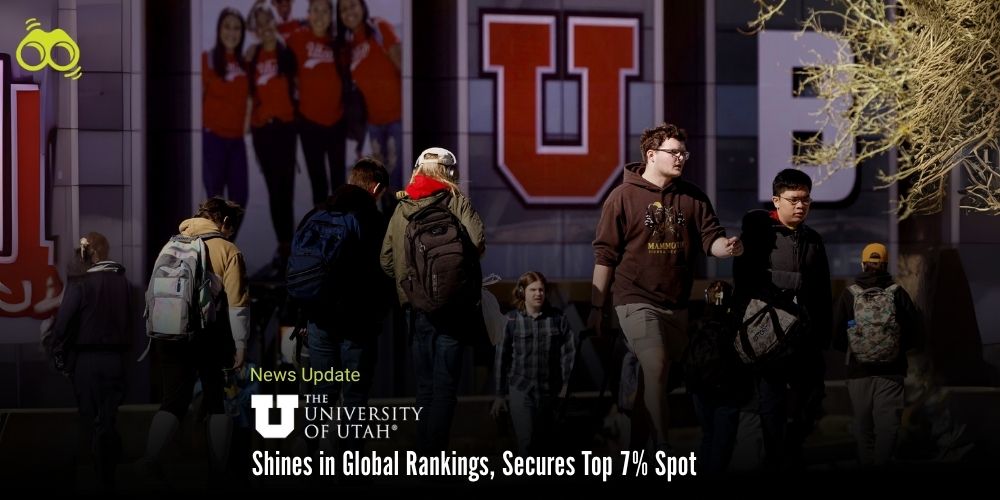Global Excellence: Universities from Asia, Africa, and Latin America Recognised
Harvard Tops 2025 Global Rankings as U.S. Universities Dominate
The University of Utah has garnered notable international recognition ahead of the 2025–2026 academic year due to its exceptional contributions to medical research. According to the 2025 U.S. News & World Report Best Global Universities rankings, it has achieved the 141st position out of 2,250 institutions worldwide—placing it within the top 7% globally. This honour reflects more than general academic prowess; the university also secured “Top 100” rankings in key medical fields, including cardiac and cardiovascular systems, clinical medicine, oncology, and surgery, affirming its growing reputation as a hub for health-related innovation.
Randy McCrillis, the university’s senior international officer, voiced pride in this achievement and encouraged international students to view the University of Utah as an inclusive environment for meaningful, human-focused research. In addition, two other Utah-based institutions, Brigham Young University and Utah State University—earned positions in the 2025 global rankings, coming in at 817th and 827th, respectively.
Unsurprisingly, the upper tier of the rankings was dominated by some of the world’s most esteemed names in academia. Harvard University claimed the top spot, closely followed by the Massachusetts Institute of Technology, Stanford University, the University of Oxford, and the University of Cambridge. The rest of the top 10 included the University of California, Berkeley; University College London; the University of Washington; Yale University; and Columbia University. Approximately 40% of the top 100 universities were based in the United States, reaffirming the country's continued leadership in global higher education.
On a regional scale, the rankings also offered useful insights. The University of Cape Town was recognised as the top institution in Africa, while Universidade de São Paulo led in Latin America. In Asia, Tsinghua University earned the highest placement, and the University of Toronto ranked as Canada’s best, sitting at 16th globally. It is important to note that the Best Global Universities rankings are based solely on academic research output and global reputation, rather than undergraduate or postgraduate teaching quality. U.S. News & World Report advises students to use these rankings as just one tool, considering factors such as campus environment, location, subject strengths, and financial costs. The methodology draws on 13 indicators, including publication volume, international collaboration, academic reputation, and how frequently a university’s research is cited.
The emphasis on research arrives at a time of rising uncertainty in the U.S. higher education sector. Earlier this year, the Trump administration introduced policy changes at the National Institutes of Health (NIH) aiming to reduce overhead funding for research grants. These changes, currently facing legal challenges, have raised alarm among research institutions such as the University of Utah, which received $291 million in NIH grants in 2023. University officials warned that the new policies could result in significant funding cuts.
This unease is not confined to Utah alone. A report from CBS News noted that unclear NIH guidelines have created uncertainty across more than 2,500 research institutions nationwide, many of which depend heavily on federal grants. Nevertheless, the Best Global Universities rankings remain a valuable source for prospective international students exploring academic opportunities abroad. During the 2023–2024 academic year, American universities hosted over one million students from more than 190 countries, underscoring the United States’ appeal as a global education destination. The University of Utah alone welcomed over 3,500 international students and researchers, while Brigham Young University enrolled learners from over 100 countries.
However, recent U.S. immigration policy changes have made it more difficult for international students to gain admission. In May, the Trump administration temporarily paused new visa interviews and later introduced a requirement for applicants to make their social media profiles public as part of national security checks, adding a layer of complexity to an already challenging process. While the University of Utah’s academic achievements have positioned it as a rising force in medical research, global rankings also highlight broader trends and uncertainties in U.S. higher education, where excellence meets ongoing policy and funding challenges.
Editor’s Note:
The latest global university rankings offer much more than just a list—they reflect the ongoing shifts in research priorities, international student mobility, and higher education policies around the world. The University of Utah’s rise in the rankings is a testament to how institutions can carve out global recognition by focusing on high-impact research and fostering a supportive, inclusive learning environment. Its impressive performance in fields like cardiovascular medicine and oncology not only strengthens its academic reputation but also reflects a deep commitment to advancing human health through science and innovation. At the same time, these rankings bring to light the broader realities facing students today. As American universities dominate the global stage, international students continue to see the U.S. as a promising destination, but one with growing challenges. Policy changes around visas and research funding create uncertainty, making it harder for talented learners and researchers to access opportunities. So while rankings give us a snapshot of academic excellence, it’s just as important to look beyond the numbers and focus on how institutions support learning, discovery, and the people behind it all.
According to Skoobuzz, global rankings reflect more than prestige; they spotlight the resilience, ambition, and evolving challenges shaping the future of higher education.














0 Comments (Please Login To Continue)